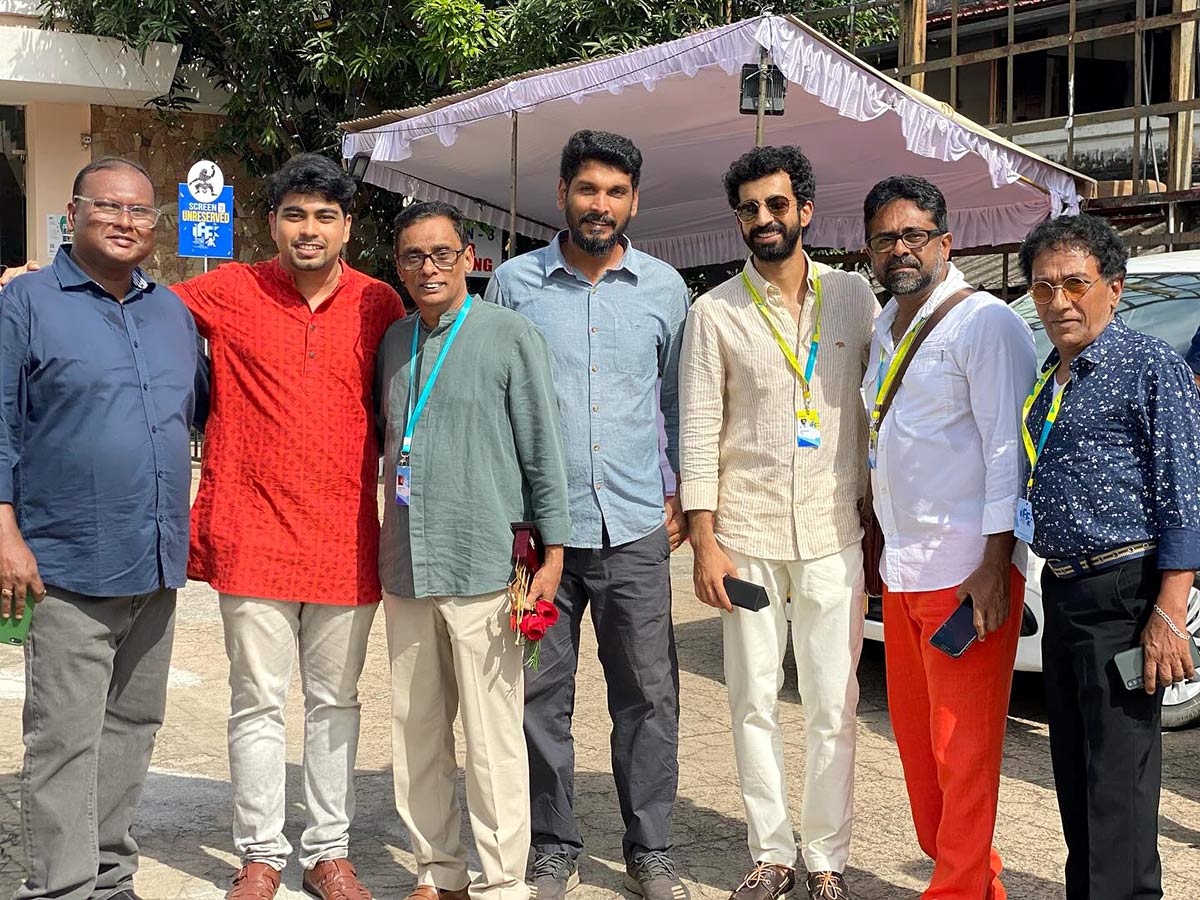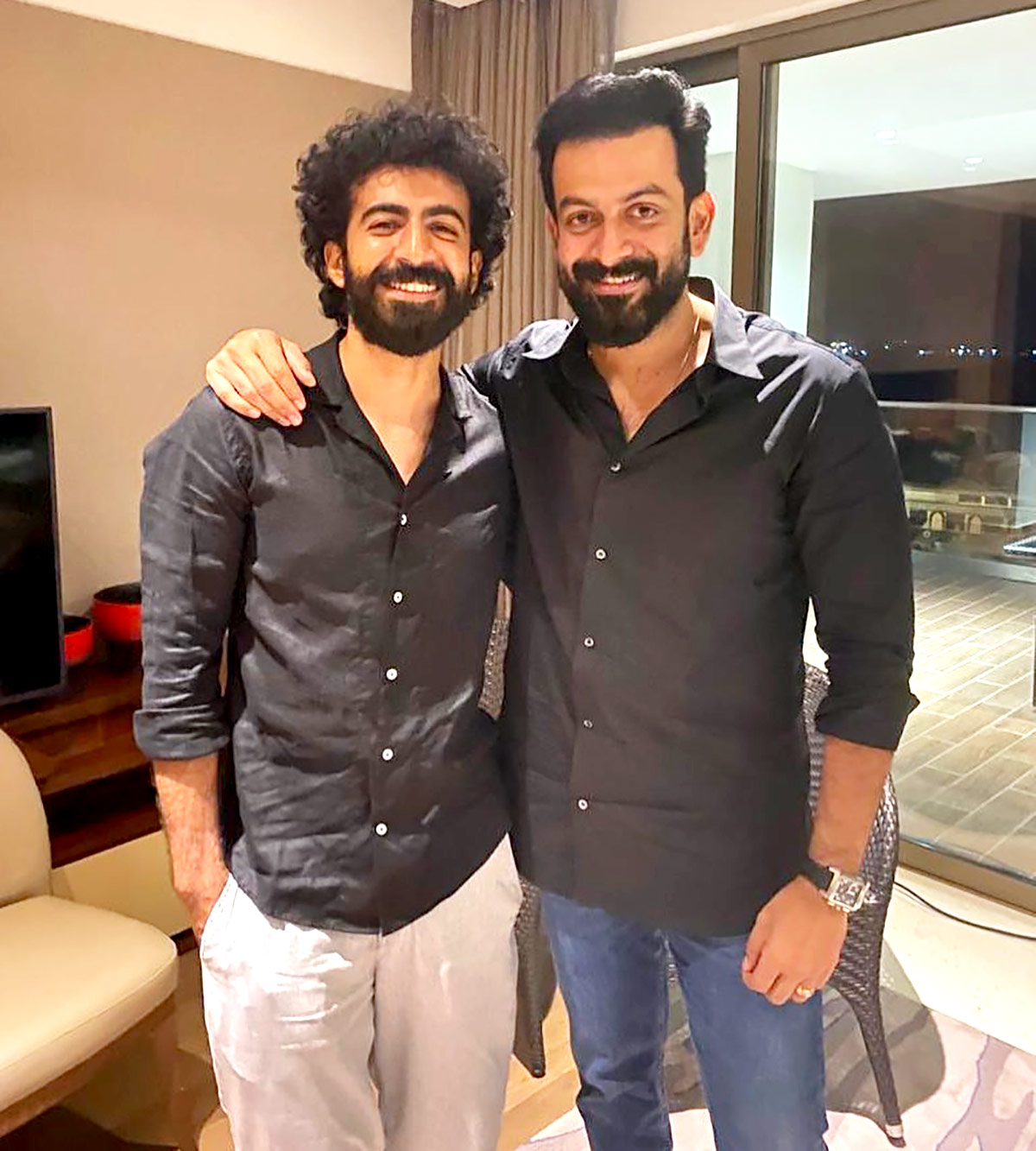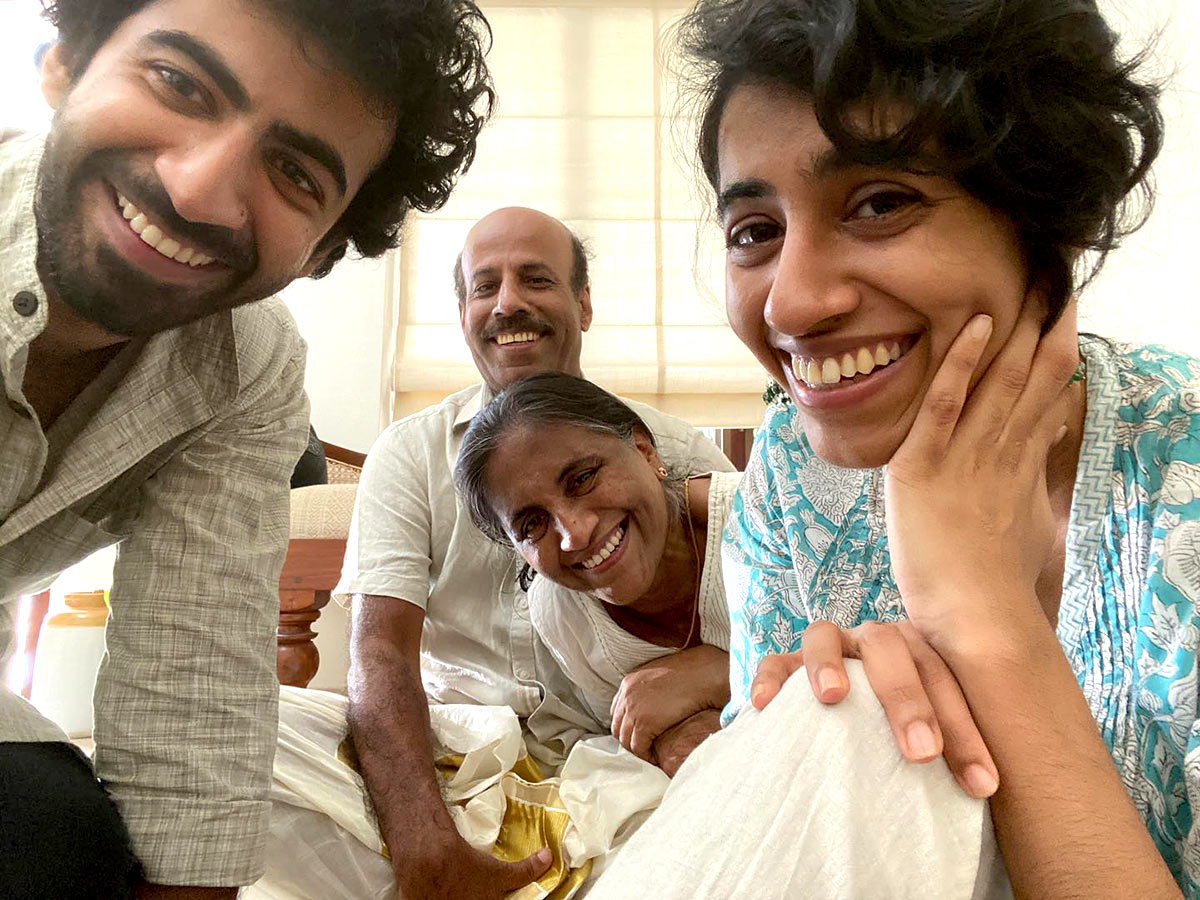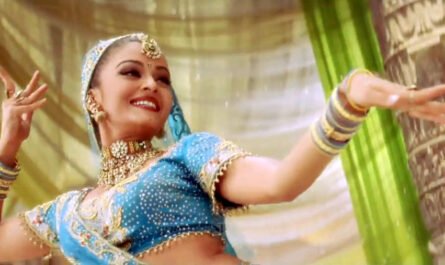” ;}
}
if(document.getElementById(‘subwait_top’)){document.getElementById(‘subwait_top’).style.visibility = ‘hidden’;}
}
else
{
document.getElementById(div_errmsg).innerHTML = “
“;
document.getElementById(div_errmsg).style.display = “block”;
if(document.getElementById(‘subwait_top’)){document.getElementById(‘subwait_top’).style.visibility = ‘hidden’;}
if(document.getElementById(subscribebtn)){document.getElementById(subscribebtn).disabled = false;}
}
}
}
if (subreq.readyState == 1)
{
if(document.getElementById(‘subwait_top’)){document.getElementById(‘subwait_top’).style.visibility = ‘visible’;}
if(document.getElementById(subscribebtn)){document.getElementById(subscribebtn).disabled = true;}
}
}
return false;
}
‘You have to be good in your project that’s releasing today for you to be working on something tomorrow. That will always be the case.’
IMAGE: Roshan Mathew and Darshana Rajendran in Paradise. Photograph: Kind courtesy Roshan Mathew/Instagram
With Malayalam cinema ruling the entertainment landscape with quality content, Roshan Mathew believes this is a great time to be an actor.
An established name in Mollywood, Roshan made impact in Hindi and Tamil cinema as well.
His latest outing is Paradise, a multi-lingual film helmed by Sri Lankan Director Prasanna Vithanage.
Roshan plays Keshav, the other half of a couple that arrives in Sri Lanka for their anniversary celebration, only to be left overwhelmed by unforeseen challenges.
“Any time you pick a exciting project, it is challenging. You hardly ever go into a shoot for an exciting project feeling, ‘Okay, I can cakewalk through this’,” Roshan tells Mayur Sanap/Rediff.com.
Is it true that you had turned down Paradise when it was first offered to you? What changed your mind?
My first conversation with Prasanna sir (Director Prasanna Vithanage) changed my mind.
This whole idea of a married couple and their relationship going awry because of external circumstances had felt similar to a movie I had done before, Choked.
I decided to meet Prasanna sir and share that concern with him.
In my first conversation with him itself, I realised what he intended to do with the exploration of these two characters was very, very, different from what had happened in Choked.
I felt excited and curious to see how he was going to do that, and how he would make us do that.
I came out of that meeting feeling like there is absolutely no chance of not doing this.
Keshav is such a layered and complex character. Is there something new you got to learn about yourself during the process of this film?
It’s not about myself per se, but this project showed me that man is basically nothing but his circumstances.
How people react in a situation of crisis is often very unpredictable, even to people who are closest to them.
With your logical brain sitting in a comfortable setting, you can’t imagine how you will react in a situation of life and death.
The decisions you make, the things you do, the things you say are often going to feel completely unfamiliar to you and the people close to you.

IMAGE: Roshan, third from right, with Director Prasanna Vithanage, third from left, and team Paradise. Photograph: Kind courtesy Roshan Mathew/Instagram
If a foreign film-maker wants to see your work, which films of yours will you show them?
For anybody who shows any interest in my work and wants to watch some of it, it’s always the same list of films that I prescribe. (Laughs)
I’ll probably ask them to look up Moothon.
Then there’s a segment in an anthology film called Aanum Pennum.
Also, C U Soon, Oru Thekkan Thallu Case, Darlings, Kappela…
IMAGE: Roshan with Alia Bhatt, Shefali Shah and Director Jasmeet K Reen on the sets of Darlings. Photograph: Kind courtesy Roshan Mathew/Instagram
Apart from Malayalam, you have done films in other languages as well. Does your approach change when you are working, let’s say, in a Bollywood film? I felt Darlings was very different from your usual naturalistic acting in Malayalam films.
No, it’s not a language-based thing at all. It was just that Darlings as a script demanded that.
It was a comedy that was played out at a particular meter.
The whole cast had to pitch it together at the same point. Otherwise, it would be awkward if one person was playing it extremely realistically and the other performances were a little more stylised.
That was actually the most exciting part of Darlings for me.
It was as much a great experience as it was fun to explore realism in moments that we find in a script. It’s as much fun to do something that is not entirely realistic.
Darlings gave me an opportunity to do that with a fabulous cast. My reason to do that film was specifically to work those scenes with my co-actors.
Malayalam cinema is making waves in 2024 with commercial success and innovative themes. How does this new landscape benefit a young actor like you?
It’s a great time to be working in the Malayalam film industry.
Every year I find myself adding to my list of people who I wish to collaborate with because there are so many new writers, directors, technicians, actors who come up each year with such interesting, original and exciting ideas.
The most important factor is that the audience in Malayalam now are open and welcome all kinds of films.
They are at a point where they look at the film itself first before they look at who’s in it or the scale or budget.
Somewhere, all of us have this idea that if we make a film that’s good enough, then the audiences will give it the love it deserves.
Even after disappointments, that’s what keeps us going.
It keeps us wanting to come back and try harder next time.

IMAGE: With Prithviraj Sukumaran. Photograph: Kind courtesy Roshan Mathew/Instagram
We have seen actors from Malayalam film industry taking to direction. Prithviraj Sukumaran is one such example. Do you envision yourself directing a film at some point?
My friends tell me that I write but I don’t say that out loud to anybody.
I write very sporadically. I write mostly for myself.
I like coming up with ideas but I started off doing theatre before films. I have directed a bunch of plays as well.
Anything that I feel like is a story I want to tell, my go-to medium is still theatre rather than films.
In films, I have only explored acting. I don’t know much about any other aspect of film-making.
I rarely go behind the monitor.
With theatre, it’s different. I’ve been more involved and I’ve worked in multiple capacities. I feel more equipped to direct a play than a movie.
But maybe, sometime.

IMAGE: Roshan with his family. Photograph: Kind courtesy Roshan Mathew/Instagram
You grew up in Kerala in a simple working class family. What’s your equation with fame and money like?
I live in Kerala mostly. I keep jumping between Bombay and Kochi.
In Bombay, I’ve only had two releases in Hindi. I have two more waiting to come out.
My work or fame doesn’t get in the way of me doing anything there.
Kochi is a place where I think people are very chill. A lot of actors are there, living their life the way they want to.
Somebody will smile at you or ask for a photo. Apart from that, it doesn’t restrict me in any way.
I’ll only get a customary nod from somebody who’s in the vehicle next to me at a traffic signal or at a cafe, somebody may walk up and say they like my work. That’s the extent of it.
About money… I decided to start off with theatre because I liked it. I didn’t expect to be working in films.
At this point in my life, I didn’t expect to have done the amount of work that I have done in films.
Yes, I’m always hungry for more but I’m also very grateful for the work that I’ve gotten to do. I’ve managed to become financially stable. This is something I did not expect.
At the same time, working in this industry means getting constant reminders there is no stability. Anything could change at any point. So you’re always on your toes.
Is there something you particularly find challenging about this industry?
So many things. There are more things that are challenging than things I find easy to do. But that’s also a part of the fun.
Any time you pick a exciting project, it is challenging. You hardly ever go into shoot for an exciting project feeling, ‘Okay, I can cakewalk through this.’
There’s a challenge at every point.
When a film is coming out.
When you’re promoting it.
When you’re fighting against all odds to get a film to its audience.
When you’re waiting for the audiences to respond to it.
You have to be good in your project that’s releasing today for you to be working on something tomorrow. That will always be the case.
When you start off, it might feel like this phase will last a few years and after that, it’s going to be comfortable.
But I’ve reached a point where I realised that it’s never going to be comfortable to just sit back and go through the motions.




